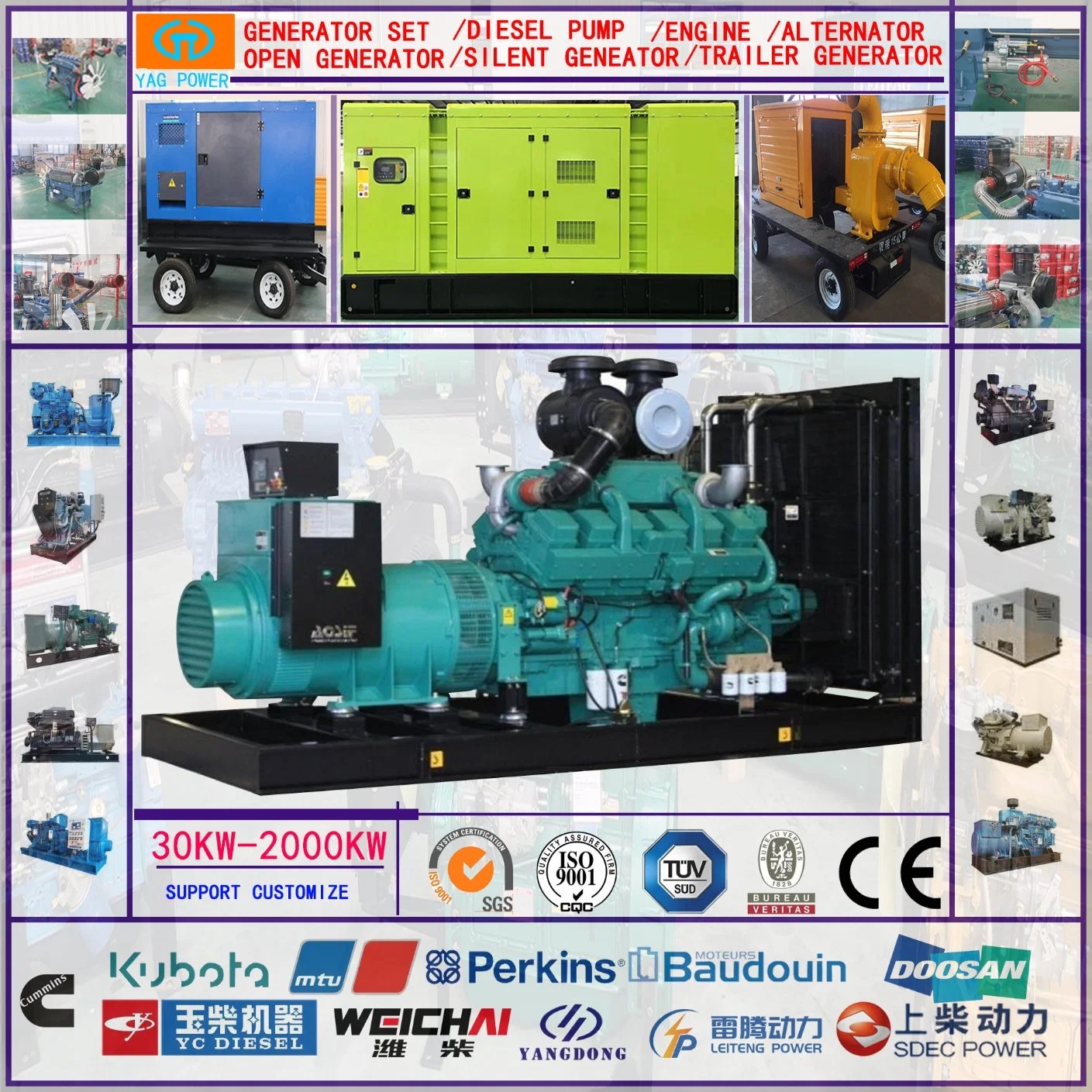Introduction
Diesel generators play a critical role in providing backup power during outages and emergencies. They are widely used in various industries, including healthcare, telecommunications, data centers, manufacturing, and more. The reliability of diesel generators is of utmost importance to ensure uninterrupted power supply when primary power sources fail. In this article, we will explore the essential aspects of reliability standards for diesel generators and how organizations can enhance their reliability to meet their power needs effectively.
Importance of Reliability Standards for Diesel Generators
Reliability is a key factor when it comes to diesel generators as they are often relied upon during critical situations. A reliable diesel generator ensures that essential operations can continue without interruption, minimizing downtime and potential losses. In industries such as healthcare, where power outages can have life-threatening consequences, the reliability of diesel generators is crucial.
Meeting reliability standards for diesel generators is not only a matter of compliance but also a strategic decision for businesses looking to safeguard their operations and reputation. By adhering to established reliability standards, organizations can ensure that their diesel generators perform optimally when needed the most.
Factors Affecting the Reliability of Diesel Generators
Several factors can influence the reliability of diesel generators. Understanding these factors is essential for organizations to enhance the reliability of their backup power systems. Some of the key factors affecting the reliability of diesel generators include:
1. Maintenance: Regular maintenance is crucial for ensuring the reliability of diesel generators. Proper maintenance practices, including routine inspections, testing, and servicing, can help identify potential issues early and prevent breakdowns during emergencies.
2. Load Testing: Periodic load testing of diesel generators is essential to verify their performance under actual operating conditions. Load testing helps identify any issues related to the generator's capacity and response time, ensuring that it can meet the required power demands.
3. Fuel Quality: The quality of fuel used in diesel generators can significantly impact their reliability. Contaminated or degraded fuel can lead to engine problems and reduced performance. Organizations must ensure that the fuel stored for diesel generators is clean, properly treated, and meets industry standards.
4. Environmental Conditions: Environmental factors such as temperature, humidity, and altitude can affect the performance of diesel generators. Proper installation and ventilation of generators, as well as monitoring environmental conditions, are essential to ensure their reliability in different operating environments.
5. Aging and Wear: Like any mechanical equipment, diesel generators are subject to wear and aging over time. Regular monitoring of key components, such as engine parts, fuel system, and electrical components, can help identify signs of wear and plan for timely replacements or repairs.
Enhancing Reliability Standards for Diesel Generators
To enhance the reliability of diesel generators, organizations can implement various strategies and best practices. These include:

1. Regular Maintenance Schedule: Establishing a proactive maintenance schedule for diesel generators is crucial for ensuring their reliability. 400kw diesel generator , oil and filter changes, fuel system checks, and other maintenance tasks should be performed at recommended intervals to prevent unexpected failures.
2. Training and Certification: Providing proper training to staff responsible for operating and maintaining diesel generators is essential. Training programs can help employees understand the principles of generator operation, troubleshooting techniques, and safety protocols, ensuring that generators are handled correctly.
3. Remote Monitoring and Control: Implementing remote monitoring and control systems for diesel generators can help organizations track their performance in real-time and receive alerts for any anomalies. Remote monitoring allows for proactive maintenance and troubleshooting, minimizing downtime and improving reliability.
4. Redundancy and Backup Systems: Implementing redundant diesel generators or backup power systems can further enhance reliability by providing additional layers of protection. Redundancy ensures that critical operations can continue even if one generator fails, reducing the risk of complete power loss.
5. Compliance with Standards: Adhering to industry standards and regulations related to diesel generators is essential for ensuring their reliability. Organizations should stay updated on relevant standards, such as those set by organizations like the National Fire Protection Association (NFPA) and the Occupational Safety and Health Administration (OSHA).
6. Emergency Response Plan: Developing a comprehensive emergency response plan that includes procedures for generator failure scenarios is essential. Having a clear plan in place can help minimize downtime, ensure the safety of personnel, and mitigate potential risks associated with power outages.
Case Studies and Best Practices
Several organizations have successfully enhanced the reliability of their diesel generators by implementing best practices and innovative solutions. One such example is a leading data center company that implemented a predictive maintenance program for its diesel generators. By leveraging data analytics and IoT technology, the company was able to proactively identify potential issues and address them before they resulted in downtime.
Another example is a hospital that upgraded its diesel generators to meet higher reliability standards. The hospital invested in modern generators with advanced control systems and remote monitoring capabilities, allowing for real-time performance tracking and predictive maintenance. As a result, the hospital was able to ensure uninterrupted power supply during critical situations, safeguarding patient care and operations.
Conclusion
Reliability standards for diesel generators are essential for ensuring uninterrupted power supply during emergencies and outages. By understanding the factors that affect the reliability of diesel generators and implementing best practices to enhance their performance, organizations can safeguard their operations and mitigate risks associated with power failures. Adhering to maintenance schedules, training staff, implementing remote monitoring systems, and having a comprehensive emergency response plan are some of the key strategies that organizations can adopt to enhance the reliability of their diesel generators. By prioritizing reliability and compliance with industry standards, businesses can ensure that their backup power systems are ready to perform when needed the most.
